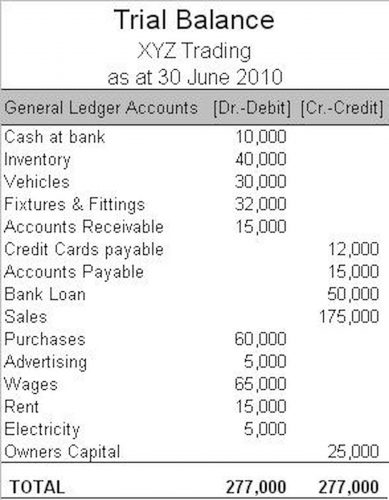
You will pay more in interest than your business makes in the same period of time. Of course, if the equipment will last you ten years and you can pay the loan off in three years, that may be QuickBooks worth it. You just won’t see a return on this investment until you pay off the debt. The U.S. Federal Reserve estimates that 43% of small businesses need external funding to grow and scale.
How to Compare Cost of Debt with Cost of Equity and Weighted Average Cost of Capital?
The annual interest payments are $5,000, which it claims as an expense, lowering the company’s income by $5,000. Simply put, the cost of debt is the after-tax rate a company would pay today for its long-term debt. Businesses take on debt for a variety of reasons, and many of them are for viable reasons. In some cases, a company may choose to issue shares of stock in what is called equity financing. In both cases, it’s not necessarily the amount of debt they assume, but how confident investors are that the debt will be paid back while still allowing the company to have operating capital. This is because you’re multiplying interest expense by tax rate and don’t want to skew your result by initially including non-tax deductible fees.

Disadvantages of Debt Financing
Because your tax rate is 40%, that means you end up paying $40 less in taxes. A mix of debt and equity capital provides businesses with the money they need to maintain their day-to-day operations. Instead, the company’s state and federal tax rates are added together to ascertain its effective tax rate. The risk-free rate is the return that can be earned by investing in a risk-free security, e.g., U.S. It’s called risk free because it is free from default risk; however, other risks like interest rate risk still apply.

How to Integrate Buy Now, Pay Later (BNPL) into Your Online Store
- To calculate cost of debt before taxes, divide the total interest of all your loans by the total debt of all your loans.
- For instance, if you have two loans with the same amount and maturity, but different interest rates, you can use the cost of debt formula to see which one is more expensive.
- Because of the write-off on taxes, our wine distributor only pays $3,500 ($5,000 interest expense – $1,500 tax write-off) on its debt, equating to a cost of 3.5%.
- The effective interest rate, calculated by this formula, reflects the average rate at which a company finances its debt.
- If you have the data in Excel, beta can be easily calculated using the SLOPE function.
Some countries offer more favourable tax treatments for interest payments, allowing businesses to reduce their taxable income through a tax shield. Other countries may have stricter limits on interest deductibility, raising the effective cost of debt. Multinational companies often engage in tax planning strategies to optimise their cost of debt across different jurisdictions by borrowing in countries with more favourable tax laws.

The cost of debt is a key component of the capital structure and the financial decisions of a company. It reflects the interest rate that the company pays on its debt obligations, and affects the cost of debt profitability, risk, and valuation of the company. By doing so, the company can optimize its financial performance and create value for its stakeholders. The three methods of calculating the cost of debt have different advantages and disadvantages. The yield to maturity method is the most accurate and realistic, as it reflects the current market conditions and the time value of money.

How Do Cost of Debt and Cost of Equity Differ?

She holds a Bachelor of Science in Finance degree from Bridgewater State University and helps develop content strategies. Here is a screenshot highlighting the interest expense Microsoft paid in 2021. Our team has identified the five stocks that top analysts are quietly whispering to their clients to buy now before the broader market catches on… MarketBeat keeps track of Wall Street’s top-rated and best performing research analysts and the stocks they recommend to their clients on a Accounts Payable Management daily basis. Although interest rates have been rising, expectations are that rates may start to go down later in 2024. If you only want to know how much you’re paying in interest, use the simple formula.

Creemos en la capacidad y en el poder evolutivo de la mente para superar las barreras que impone el movimiento
© Copyright 2023 Design by malzate
Comentarios recientes